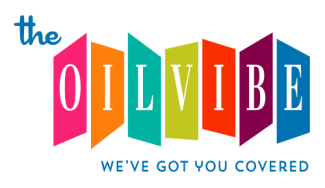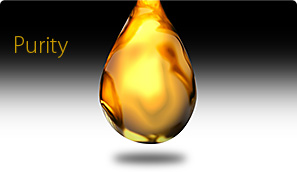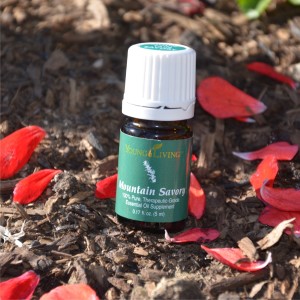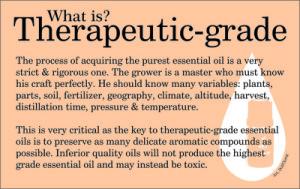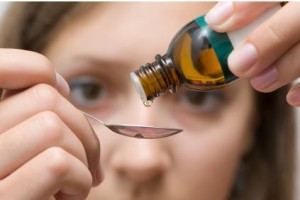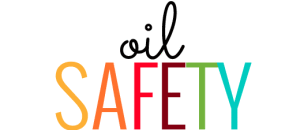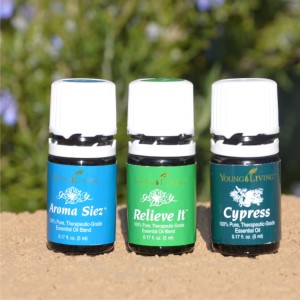Dispelling Myths of Aromatherapy Deception
Enough already with blatant deception from “expert” aromatherapists towards the rest of the essential oil world. Just because someone does not attend the Atlantic Institute , Aromahead or NAHA, the National Association of Holistic Aromatherapists, doesn’t mean we are not fully invested in the health, wellness, safety and proper education of our members. Going down that path is the start of some dangerous and clueless accusations on their part.
Let’s set the record straight from the get go. Are people out there giving poor education and solely in the essential oil industry for monetary gain with the purpose of marketing? Of course! Poor quality essential oil companies that source their product instead of grow and distill it on their own are guilty as charged. However, before you hurl rampant sweeping accusations against the entire world of EO’s, you better do your unbiased homework.
The minute I start reading blog posts where the sole direction and undertone of the article is to target Young Living I become quickly disengaged. Now, if they were to start with neutral, research based points regarding essential oil usage and safety I may be more inclined to read on. But have no fear, I will dissect false accusations line by line below.
There is the common mistake of lumping DoTERRA {and now a mass amount of companies jumping on the band wagon} into the mix, but that is for another post. I beg you, please stop speaking of the two in the same sentence. There simply is no comparison between a company that sources from brokers, re-bottles their oils, does not distill properly making a sweeter smelling oil and one that has a personal hand in the process of an oil from Seed to Seal. A company built on biblical principles and one of the oldest most integral business in the world growing, cultivating and distilling essential oils.
Back to the aromatherapy wars…
Some of my favorite titles as of late, “3 reasons to avoid ingesting essential oils”, “Essential oils are dangerous” and “Essential oils can harm your family!”. Good gracious I would run far away from essential oils too if that is what I was told or read. Why do you need fear tactics? If you are a trained aromatherapist subscribing to chemistry based research, there is simply no need to instill horror in moms just trying to start living a more natural, chemical free lifestyle. So why do they do it?
For one thing, the platform of many aromatherapists is not about the quality of the oils, it is more of a political one. Some seek legislation to be formed into law for every State (and Provinces in Canada) that issues licenses to practice aromatherapy. In essence, only those they train and approve can become licensed and have the ability to use essential oils. Sounds a bit like the toxic/chemical industry to me (monopolize and legislate). In order to persuade legislators about the need for such laws, they have to take the position that essential oils are somehow intrinsically dangerous and should not be used or administered by anyone but “qualified practitioners,” like themselves.
Just as these bloggers/aromatherapists feel the need to condemn other companies, they are also leading the public astray with their own blend of half-truths. So lets set the record straight from the vantage point of a well-educated and informed pro-essential oil user (me) that actually cares about each and every one of my members health and (gasp) safety. {and I am trained in the French School of Aromatherapy}
French vs. British
Take this as a warning, most bloggers and aromatherapists will automatically try to discredit this very basic point in history. Why? I have no idea, all of their books and training and the “expert” they look to called Tisserand leans toward a fear-based British mindset. It really does make a difference in setting the stage for each point listed below to understand this very basic foundation of EO safety:
The French were the first ones to begin using EO’s for health in the early 1900’s. Their benefits were discovered by a physician who began using them and quickly began teaching the public on how to use 100% pure oils. His passion was to openly provide and teach others, regardless if they were a physician, to use EO’s neat (directly on skin without diluting), take them internally or inhale. That is the French School of aromatherapy and they stress the importance of using 100% therapeutically pure oils. This means you have to know how your oils are grown (without chemicals/pesticides), when they are harvested, the harvesting process, the distillation process and even the bottling and distribution process. If everything is not done correctly you will end up with a damaged oil or an oil that has been tainted with synthetics as companies try to make up for missing chemical compounds (due to incorrect harvesting or distillation) and these synthetics will cause much harm to your body if ingested or applied neat. Notice I am not using the term “French School or German School” as a scapegoat that gives freedom to just ingest oils willy nilly, as aromatherapists would have you believe. The FOUNDATION is the quality and purity of an essential oil and that SHOULD be the marker of “safe ingestion”. Also keep in mind the classifications of oils. Ones will be marked as use for internal processes, others for emotional support {inhale/diffuse} and others topical.
This is where the British School of aromatherapy enters the scene. Around the 1950’s a French woman who had migrated to England began teaching aromatherapy. She was not a physician and consequently did not feel credible teaching people how to use oils for health and wellness purposes so she began teaching to use oils that have been heavily diluted in a carrier oil (coconut, olive oil, etc) and applied by massage. Because of this the purity of oils are never stressed within a British School of aromatherapy and they are directed to never use oils “neat” and only take EO’s orally under the care of an aromatherapist (which I find interesting since they pretty much stand on a platform of never ingesting), creating a lot of unnecessary fear while they are missing out on the wonderful benefits of EO’s. Almost all aromatherapy schools (except two) in North America are of the British School which is why you will see many articles and blogs saying to NEVER ingest oils or apply neat (directly onto the skin), which, let me say again, is correct if you are not utilizing the makers listed above.
The Myth of “Scientific Research”
As for science, you will stumble upon multitudes of excellent studies and also thousands of bad ones. The good ones talk about therapeutic grade oils, and define that term, and most importantly the studies are performed on humans. The bad articles conveniently leave out the quality or brand of oil tested, usually test on animals, and most of the time take one compound out of an essential oil, test it in a lab, and if it is found toxic, they condemn the whole oil. You simply cannot do an isolated test on essential oils.
There is a synergistic effect that occurs within a pure essential oil. Hundreds of active chemical constituencies interact with the hundreds of other compounds in the oil, and while potentially hazardous alone, are harmless and beneficial in concert with the other constituents of a whole oil. They have no science to back their claims, even though they cite long bibliographies in their articles. Look at the research carefully and dissect it. In every case, you will unveil that the quality of oil was never validated. (Stewart)
So when anyone, whether a blogger or aromatherapist, attempts to bash therapeutic grade essential oils and tries to cite what appears to be scientific papers, ask them three questions:
- Are these studies on humans or animals?
- Are they about single isolated compounds of an oil or the whole oil?
- Are they about therapeutic grade oils (as defined by Young Living), or are they about food or fragrance grade, and are the oils tested pure or adulterated?
Unfortunately, they are unable to answer any of these questions satisfactorily. The truth is not what they are after, it is a political agenda instead. You see, a true essential oil educator and enthusiast, would have no preference either way as to which oils a person chooses and how they decide to administer them. They care about the purity. Does the oil pass the litmus test?? The only one I know is Young Living, and few select ones from France which are not readily accessible in the United States.
Summary: Whether you believe strongly that the history of the French approach or the British approach directs your usage of oils is irrelevant, what should matter is purity. Know your oil, know your company, and know some chemistry. One can easily weave all “schools” together and enjoy the amazing benefits of essential oil usage as long as you are choosing a truly pure oil.
Let’s stop using these different “cultures” as a way to speak about oils and bash one another; instead lets focus on the false products that are on the market today and offer education to the population so they can make personal wise choices regardless of thousands of aromatherapists bashing Young Living with absolutely zero merit.
Therapeutic-Schmerapeutic
Ok you have me on this one. There really is no such thing, but let me tell you why before your jaw drops to the floor. Once, a long time ago, there was a term called therapeutic-grade that really meant something, then every oil company started using it, coupled with minimal regulations causing the EO world to just get all crazy! The term today needs to be taken with a grain of salt. What is therapeutic grade when no good measures exist? How do you really know as the consumer?
I find it interesting that a company like DoTERRA needs to trademark a term (CPTG), Certified pure therapeutic grade. Read that carefully…its a trademark. NOT a standard of true quality that aligns with science, chemistry and historical standards of essential oil purity. If you have to trademark a name to convince your members of safety and purity, then believe me there is something big missing from that puzzle.
Purity rests in the entire process from seed to seal. You don’t need a trademark for that.
So the term therapeutic is great for some people to throw around, but what should you, the mom seeking amazing health for your family look for in terms of really finding pure oils…SAFE oils? This is why I ultimately landed on a company like Young Living.
There are, as of yet, no standards for therapeutic grade essential oils set by any government agency in the US. You will find that labeling fraud is rampant. To be sure you are getting therapeutic grade oils, its imperative to know your grower, distiller, packager and your distributor, because anywhere along the chain of delivery, oils can be compromised.
Anyone can produce food or perfume grade oils, there is nothing inherently dishonest about that. The problem comes when such oils are bottled, labeled, and presented as if they were therapeutic when they are not. Such oils contain the favoring and aromatic compounds desired by their respective industries, but are usually missing the therapeutic compounds that do not contribute to taste or smell. And those are the most important ones to have in order for an oil to create cellular change.
Common practice is to take an inexpensive petrochemical (solvent) and dilute an essential oil 90% to 95%. That toxin is colorless and odorless, so the potential consumer would never know. The original pound of essential oil has now become ten to twenty pounds and sold as if it was the original substance meanwhile huge profits are made. Such diluted oils often carry the labels saying, “Genuine” or “100% pure,” which is allowed by the US FDA. However, when you see a bottle of fluid labeled as “frankincense” for $10-$30 for a full ounce, it most assuredly has been diluted because you can’t gather the resins from the Arabian and Somalian deserts, and then import them to the US (or any other country) for that price and maintain quality and purity. (Stewart)
Mysteriously, for every pound of frankincense distilled in the world, more than a dozen pounds are eventually sold.
Are aromatherapists ever speaking in-depth about this topic? Or strictly trying to convince you that essential oils are so dangerous only they can instruct you on how to use them properly?
So what oils are you using then?
If Young living is so horrible, then what are these attack-focused trained aromatherapists using? I certainly hope it’s not oils from the local co-op. Have they called the company and asked for a GS/MS screening report? Have they visited the farms to watch the process from planting to bottling? Have they really looked into the integrity and painstaking steps that Young Living takes in order to ensure unsurpassed quality of their product? Instead they are bent on destroying a company just because they subscribe to direct marketing. Again, another post to dispel those myths.
Ingesting is DANGEROUS
Another one of my favorite titles out there “3 Reasons to avoid ingesting essential oils”
{keep in mind we are required to classify oils in three categories, internal, diffuse and topical, there is nothing we can do about that, but there IS something we stand on in Young Living and that is PURITY which should speak volumes to you and guide you in your choice}
Oh really, because your expert book told you so? A favorite line “The only cases of death, organ failure and hospitalization in the history of aromatherapy have been caused by ingesting essential oils. It is THAT dangerous.” So, where did you find this, where is your research, and upon finding such said research, what oil was used. Most assuredly it was not a properly used, with common sense, pure unadulterated essential oil.
You point to chemistry, I point to chemistry with the added benefit of great care, love and expertise in carefully cultivating essential oils.
Then you say topical is more effective than ingesting. The burden of proof lies on you to test this argument with a properly cultivated and distilled oil. Ingesting essential oils is a personal choice{again with regard to classification}, but one that can provide great benefits
{please use the FDA product descriptions and reference books as a guide to usage}. Common sense always rules and that goes right back to proper education of the member.
Here is another one of my favorite paragraphs:
“Never consume essential oils. Even if you read a book by an aromatherapist from a country that uses essential oils internally, they should never be consumed. The practice of consuming essential oils is dangerous and was designed to be done under the care of an aromatherapist trained in that form of therapy. In addition, studies have shown that topical aromatherapy is more effective than internal aromatherapy methods.”
Oh that political agenda again.
Rebuttle:
So you are telling me that even if someone reads a scientific based book from a french aromatherapist that has been using essential oils for years internally, he should be automatically discredited? What planet are you living on? The French basically set the highest standard of all for proper use of essential oils and Young Living prides itself on following this ancient model. Your Aromatherapy-based safety data again follows a heavy dilution method that does not decipher the quality of oil.
Do essential oils need to be used with common sense. Yes. I am not questioning that. But the fear tactics just don’t fly with me, and they also shouldn’t with other consumers. We always go back to point #1, know your oil and know your company. Do what you feel is best for you and trust your own research.
Who rules here? The French, no wait actually the ancient people of the Bible. They ingested heavily, used EO’s extensively topically, but what did Jesus and his disciples know right?
Topical is more effective?
The system of the body being targeted, and the classification is how we typically are guided in taking an essential oil. When we speak of how to use oils and are following proper FDA guidelines there are things call structure-function claims. This provides us the greatest amount of freedom when mentoring our members on taking oils internally. Oils that are classified as topical and diffuse are much stricter in descriptions. This is where you doing YOUR research and seeking out reference tools and books will ultimately be the best thing you can do to feel confident.
Injury (mis) reporting
“Essential oils are incredibly potent and need to be dispersed into a carrier before applying them to the skin. You wouldn’t wrap your body in 30 lbs. of plant material so don’t apply that much or more directly onto your skin.”
First, no of course I wouldn’t wrap my body in that, because herbs are not the same chemically as a distilled oil.
This aromatherapist then goes on to list the injury report as collected by the Atlantic Institute. Guess how many? A whopping 34 cases. Now that is dangerous! 34 is HUGE. I would be scared too! 34 out of millions of users who have had zero issue because they use pure essential oils with common sense. This report does not determine how they used the oil or if they were given proper education. And there is NO validating information other than the person was “real” by supplying their name and email. Well shoot, if I was an aromatherapist bent on attacking a particular company I sure would create an injury report myself. Notice the highest reports are also by using DoTERRA? But again this report is flawed in every single way of scientific reporting and collecting of data.
Safety and Usage
Bloggers often bring up some common “safety” practices and direct it straight at other company representatives as if the majority of us are out there pouring bottles of oils on people and holding their mouths open. Hello? That just does not happen. And I can assure you that members out there falsifying claims and offering un-safe practices are not respected nor will they be able to continue for long. I am not sure about Doterra (because I see a whole lot of non-compliant posts out there still from those reps) but I can assure you Young Living takes their role in training very seriously. So please do not throw data at me from a case in the 1980’s of a woman who drank “large” amounts of pennyroyal in order to induce an abortion that proved fatal to her (Gold and Cates, 1980). She chose to do something dangerous (to which the purity oil again was never mentioned) and paid the price. Someone can jump off a bridge as well, is that my fault~no.
Here is the deal:
- We advocate for proper use. Oils are potent, dilution may or may not be necessary but certainly everyone should begin with dilution until they experience the effect that is most desirable for them.
- We always use the botanical name for the plant. This would be a HUGE red flag if the company you are using does not
- Oils should never have an expiration date on the bottle, they should have a lot number pointing towards the harvest each oil originated from
- We never touch our eyes after having oils in the hands until you are in the clear (typically 20 minutes, as an oil is fully absorbed by then). But even if we did have an accident, a carrier oil would simply take the sting away, and if you are using a pure essential oil such as Young Living, you know there are zero chemicals added. And we do not typically place oils in the ear canal.
- We use common sense
A lot of what you see in those publications is not determined by science or chemical fact, but by legal considerations. There is a lot of misinformation out there about essential oils, most spread by British trained aromatherapists who are possibly using impure, non-therapeutic, adulterated oils and do not recognize that Young Living oils are different in their purity and quality. As a result, many regulatory agencies, including the Food and Drug Administration and the Medical Licensing Boards, as well as legislators, have been misinformed by these people who make rules and state precautions that are applicable to low grade oils, but are inappropriate for YL top grade Oils.
In terms of oils deemed unsafe or hazardous, remember toxicity is dose and concentration related. First, we always refer to purity, as this immediately can delete many off the list of “potentially unsafe”. After that, many oils alone could be considered to strong, or too hot; however as part of a blend the concentration and strength diminish. This is often not spoken of by aromatherapists. Blends do not manifest the same levels of potency as a single oil would. This is why we dilute, but dilution is also a personal choice and one you find in discovery as you learn more about oil usage.
Are there oils to be used with Caution?
Oils are potent. One reason why we reach for them daily over toxic products. We turn to oils because of their plant-based compounds and the benefits that we see in our bodies.
Always follow basic safety guidelines (some as listed above) but again, one must educate and research for themselves, and in your own personal discovery you will find what works best for you and your family.
The mistake that is made, is taking at face-value the misleading titles in a Google search.
Here are 12 Questions to ask your EO company. Be sure they say “yes” to all of them
Why the distaste fellow aromatherapists?
Is it us? Quite possibly it is. That we are not qualified in your opinion to educate and help our members experience to goodness that essential oils have to offer and ignite a change in someone’s body, pushing it towards health.
Do not judge me or another very solidly educated Young Living member by some that are not adhering to proper information. I am sure there are some pretty whacka-doodle aromatherapists out in the world as well.
There is no room for critique. One only needs to dig into research and study the Seed to Seal commitment that Young Living stands on.
I agree there is a whole lot of mis-information floating around and willy-nilly suggestions from ill-trained educators. To those, let me speak directly to you. While I applaud your passion to share about oils, please do it from an educational perspective, read and study about oils. It will only help you give your members a more solid foundation and hopefully these “oil-wars” will crumble.
It does a disservice to people, to suggest that only schooled medical professionals can have adequate knowledge to treat the routine health needs of their families.
For the consumer, research and ultimately choose what you are comfortable with. However, I would encourage you to try many different brands, applications, and uses of essential oils before you form a solid opinion either way. The smell test of one oil to another, usually seals the deal right there.
If you are interested in learning more about essential oils within our community please click here. We offer proper education and safety without fear.
Resources:
ARAISE – The Association for the International Research of Aromatic Science and Education, they promote scientific validation of essential oils fro home, healthcare and medical uses
Current Essential Oil Clinical Research by Shawn and Tonya Peterson
The Chemistry of Essential Oils Made Simple by Dr. David Stewart
Schools of Aromatherapy with non-agenda teaching:
The Wellness Institute of Living & Learning (WILL) has a program in Aromatherapy which is a certification in “Integrated Aromatic Science.” The school is located in Brampton, Ontario, Canada. She wrote the books, “Electromagnetic Pollution” and “Saving Face.”
Director of the Natural Therapies Certification Board (NTCB) at (800) 710-1539 or [email protected]
Institute of Spiritual Healing & Aromatherapy (ISHA). They have a certification program in Clinical Aromatherapy. Their website is www.HTSpiritualMinistry.com
All of the other Aromatherapy certification programs I know are British oriented. Should one choose to enroll in a program, it is best to go in with your eyes wide open and guard yourself against being spoon-fed their beliefs. But, rather, ask healthy questions and promote the use of pure unadulterated essential oils that were grown, harvested and distilled sustainably. Young Living, to my knowledge is the only company to adhere to these practices.
